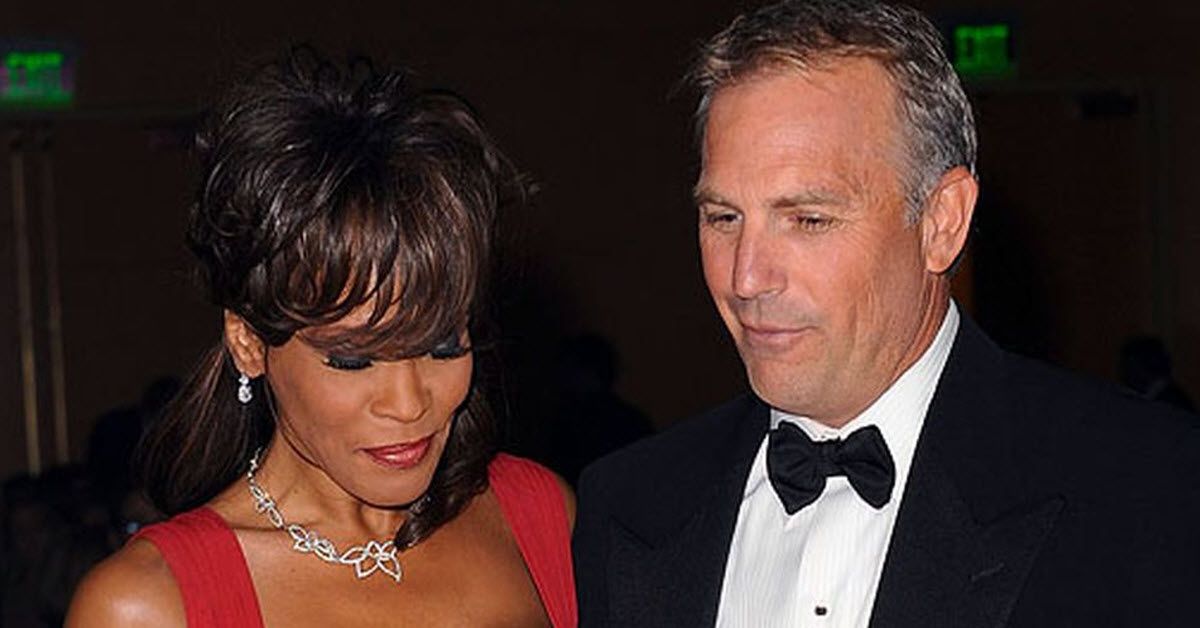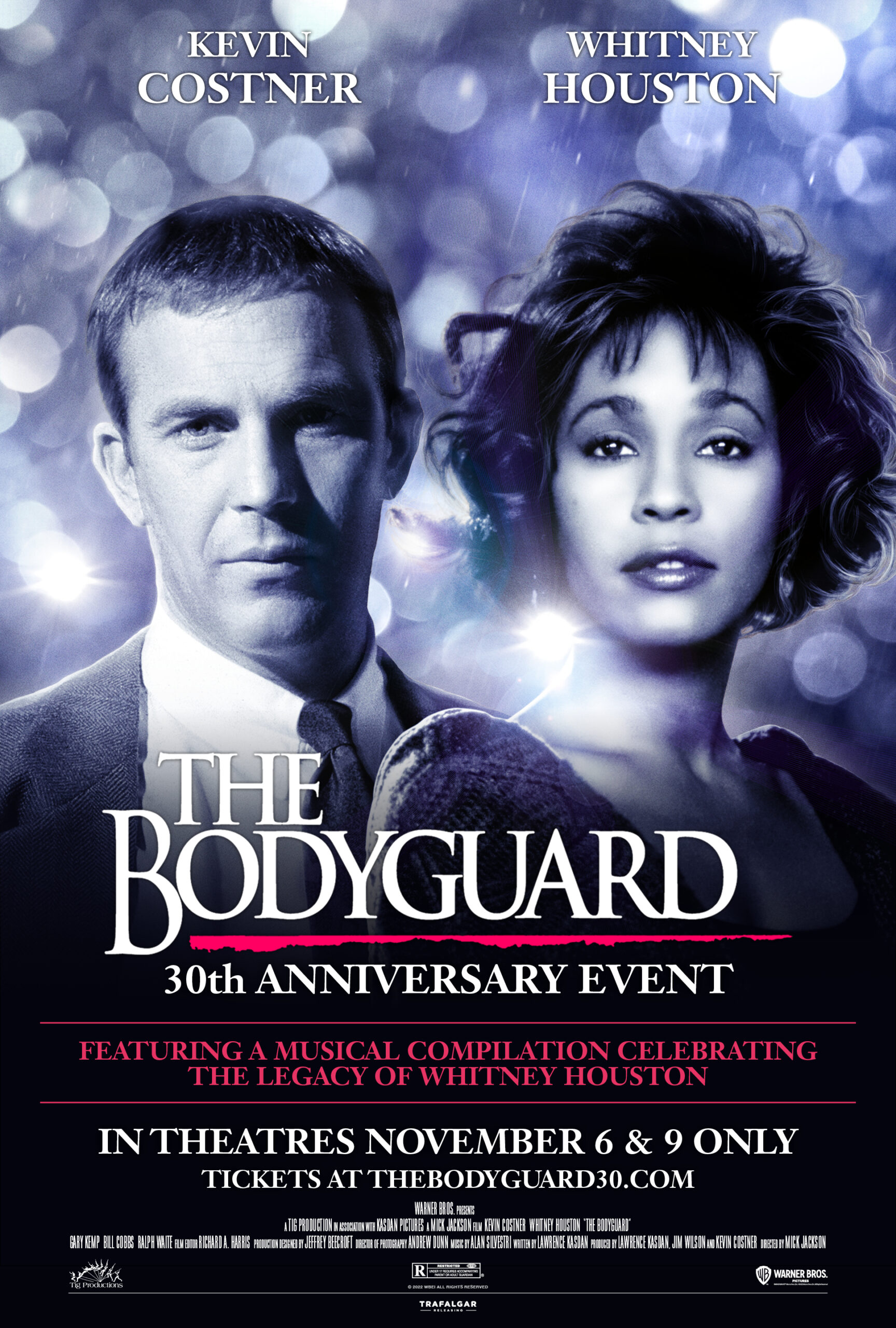Whitney Houston Opens Up About Kevin Costner at 48: A Shocking Revelation
At 48, Whitney Houston, the legendary singer whose voice enchanted millions, opened up about her profound connection with Hollywood icon Kevin Costner. Their unforgettable on-screen chemistry in the 1992 blockbuster The Bodyguard captivated audiences worldwide, but off-screen, their relationship revealed a deeply intricate and heartfelt bond that resonated beyond the spotlight.
Whitney Houston, who tragically passed away in 2012, shared untold stories of blurred lines between on-screen chemistry and genuine affection, late-night heart-to-heart confessions, and a poignant love that lingered in her heart for decades. Below is a concise 500-word summary capturing the essence of her heartfelt revelations about her bond with Kevin Costner during their time working on The Bodyguard.

In 1991, when Houston was 28 and Costner was 37, their first meeting sparked an electric connection, blending her soulful gospel roots with his Hollywood leading-man charisma. Cast as Rachel Marron in The Bodyguard, Houston faced immense pressure in her acting debut, compounded by widespread skepticism about her ability to carry the role. Yet, Costner’s unwavering support became her anchor. He looked at her with conviction and said, “I believe in you, and I won’t let anyone replace you,” a promise that bolstered her confidence and forged a deep trust between them.
Their collaboration went beyond professional camaraderie, as late-night conversations revealed vulnerabilities and dreams, blurring the lines between their roles and real emotions. Houston described moments of raw honesty, where Costner’s encouragement helped her navigate self-doubt, while his own reflections on fame and family resonated with her. This emotional intimacy fueled their on-screen chemistry, making Rachel and Frank Farmer’s love story unforgettable for audiences.
However, Houston hinted at a bittersweet undercurrent. The affection they shared, though profound, was complicated by their respective lives—her rising music career and his established Hollywood path. She spoke of a love that wasn’t fully realized, one that haunted her as years passed, leaving her to wonder about what might have been. Despite this, their bond remained a cherished memory, a testament to a connection that transcended the film.
The Bodyguard’s success, grossing over $400 million worldwide, cemented their place in pop culture, but for Houston, the experience was deeply personal. Costner’s faith in her not only shaped her performance but also left an enduring impact on her heart, making their story one of both cinematic triumph and unspoken longing.
Whitney Houston’s heartfelt assurance from Kevin Costner became a lifelong pillar of strength, grounding her through turbulent times. Filming The Bodyguard’s romantic scenes was an emotional crucible; each tender embrace and lingering gaze felt achingly real, leaving her heart racing long after the director’s “cut.” The iconic scarf-drop scene obliterated the line between fiction and reality, with Houston seeing raw, unguarded emotion in Costner’s eyes, mirroring her own unspoken feelings.

Off-screen, their bond deepened into something profound and complex. Houston recalled Costner’s late-night visits to her dressing room, where he confessed, “Sometimes I can’t tell what’s real and what’s just a movie anymore.” She echoed his turmoil, her heart torn between her marriage to Bobby Brown and the undeniable pull toward Costner, who was himself bound by family obligations. Their connection flourished through clandestine gestures—red roses accompanied by notes reading, “Rachel or Whitney, you deserve to be protected,” slipped into her hotel room after grueling press events. Yet, this unspoken love brewed turmoil. Brown’s jealousy fueled explosive confrontations, straining Houston’s marriage, while tabloid headlines amplified public speculation about their closeness, adding pressure to their fragile bond.
By 1994, a near-kiss in a dimly lit hotel hallway laid bare their struggle to resist temptation. “I tried to forget, but I can’t,” Costner admitted, his voice heavy with longing, as Houston, tears welling, acknowledged the impossibility of their union, tethered by their respective families and public lives. Their secret endured through the years, sustained by late-night phone calls during Houston’s darkest moments. As her life unraveled amid addiction and a collapsing marriage, Costner’s voice offered solace, a beacon in her storm.
In 1996 and 1997, he appeared at her lowest points, flying to London after a collapse to hold her hand, urging, “Let me be your strength.” Yet, societal expectations and personal responsibilities kept their love at bay, an unattainable dream.

The Bodyguard’s monumental success—grossing over $400 million globally and propelled by the timeless I Will Always Love You—catapulted Houston’s career to new heights, but each note of that ballad carried her unspoken love for Costner, a love she could never fully claim.
By 2000, a clandestine meeting in a quiet New York café saw Costner offering to spirit her away, a proposal she declined despite her heart’s yearning, bound by duty and fear of the unknown. Theirs was a buried love, a “sweet nightmare” that haunted Houston, rendering her a “fragile woman” beneath her radiant spotlight. At 48, her poignant revelation unveiled a tragic, beautiful, yet destructive romance that profoundly shaped her life until its heartbreaking end in 2012.
Also Read: Unlocking Beth’s Pain: The SH0CKING Link Between Her Two Tragedies & Yellowstone’s Darkest Force!

